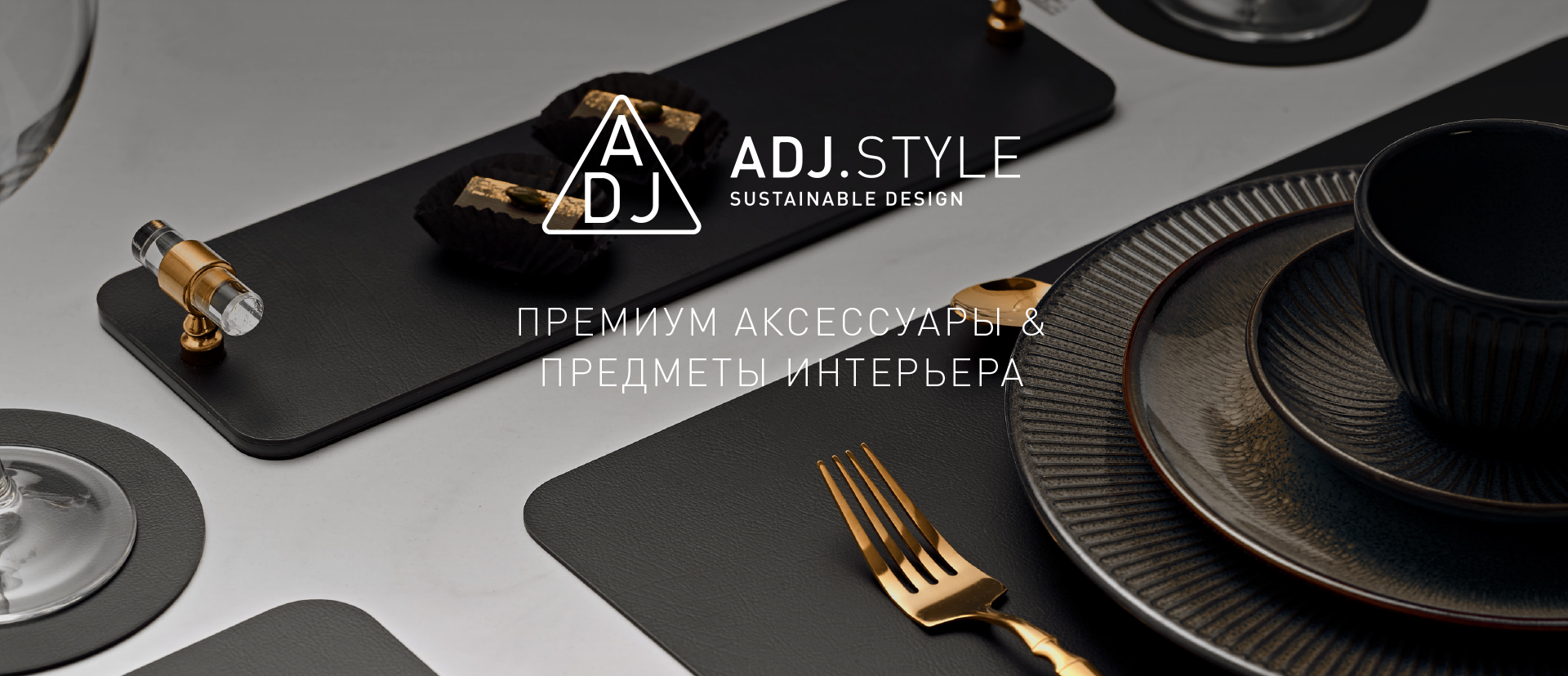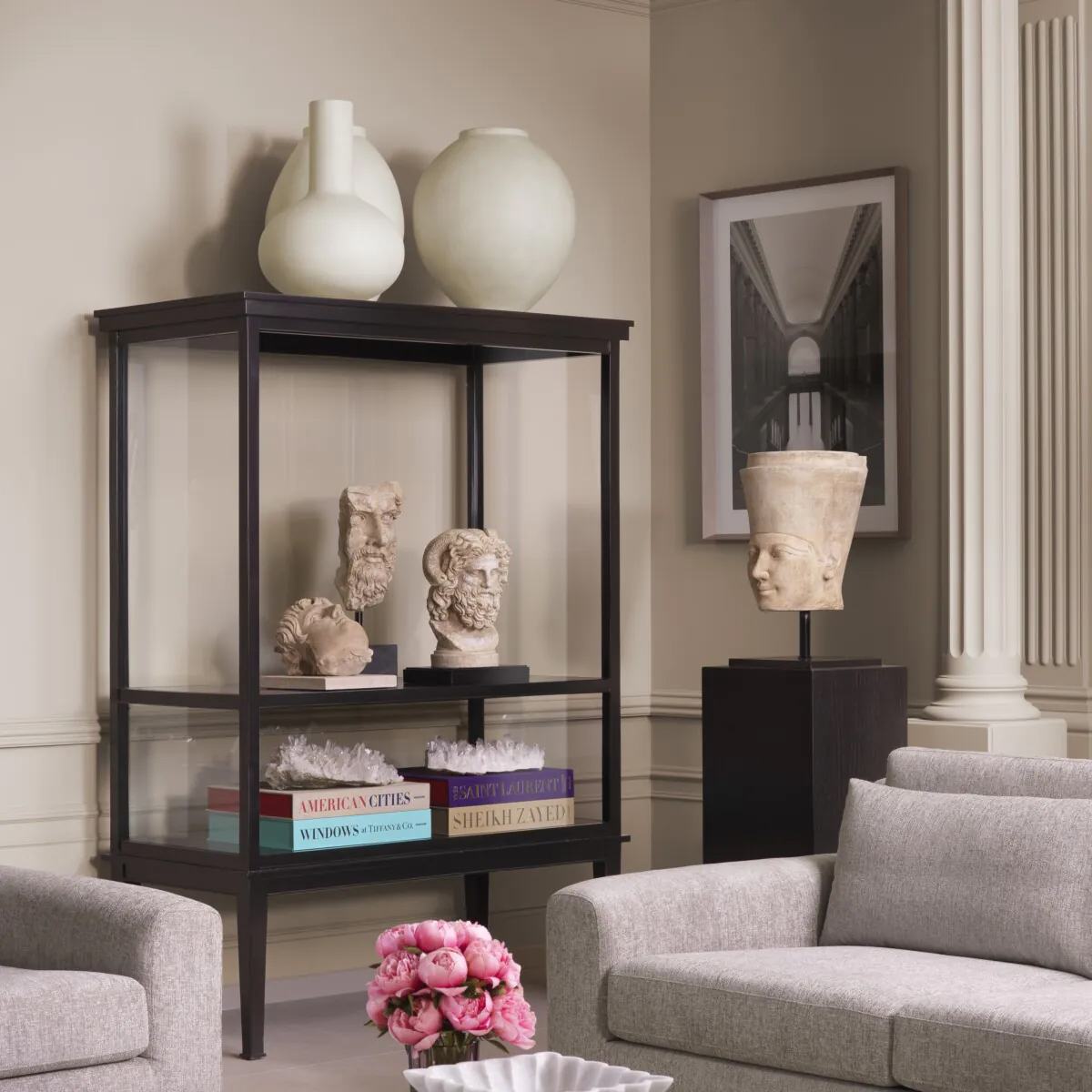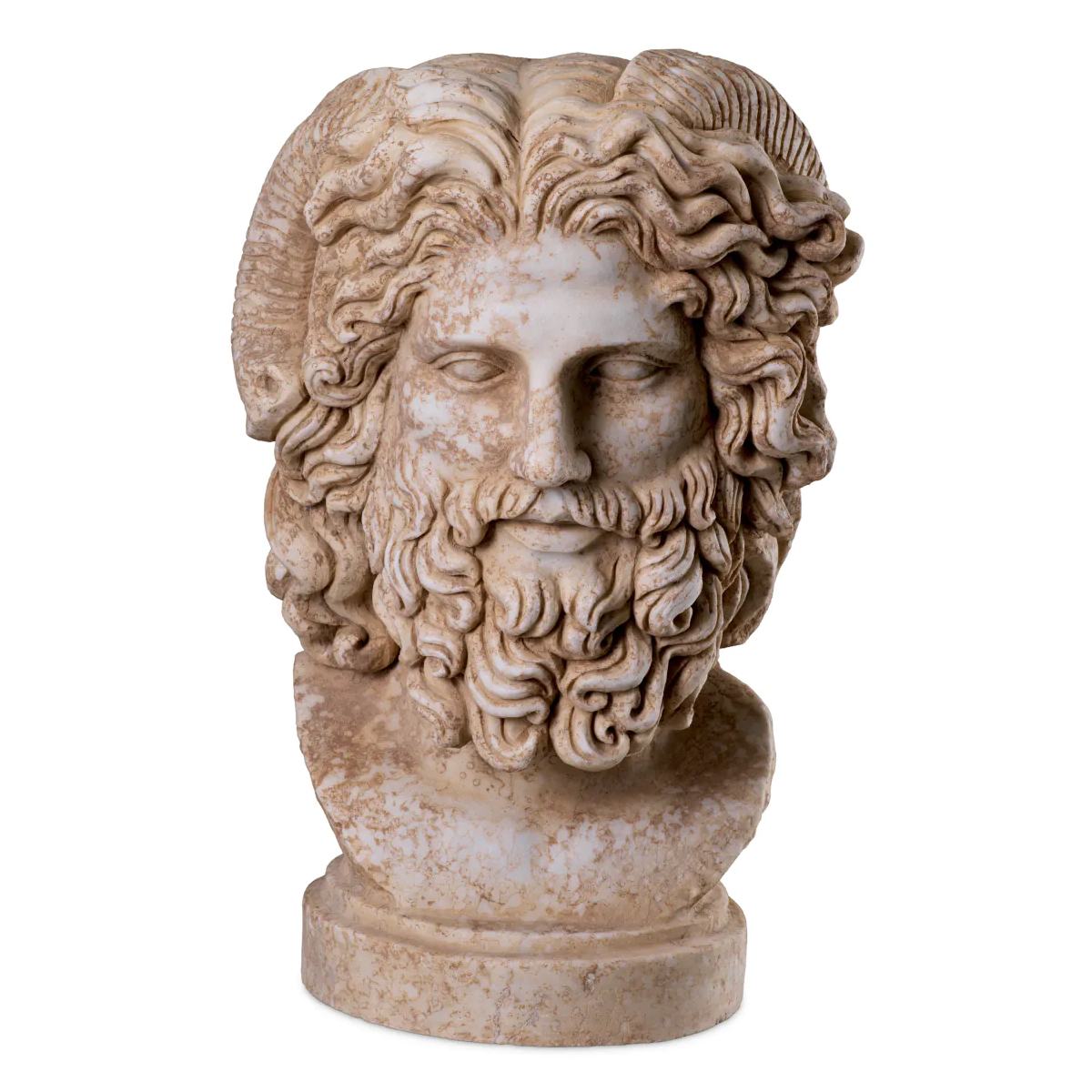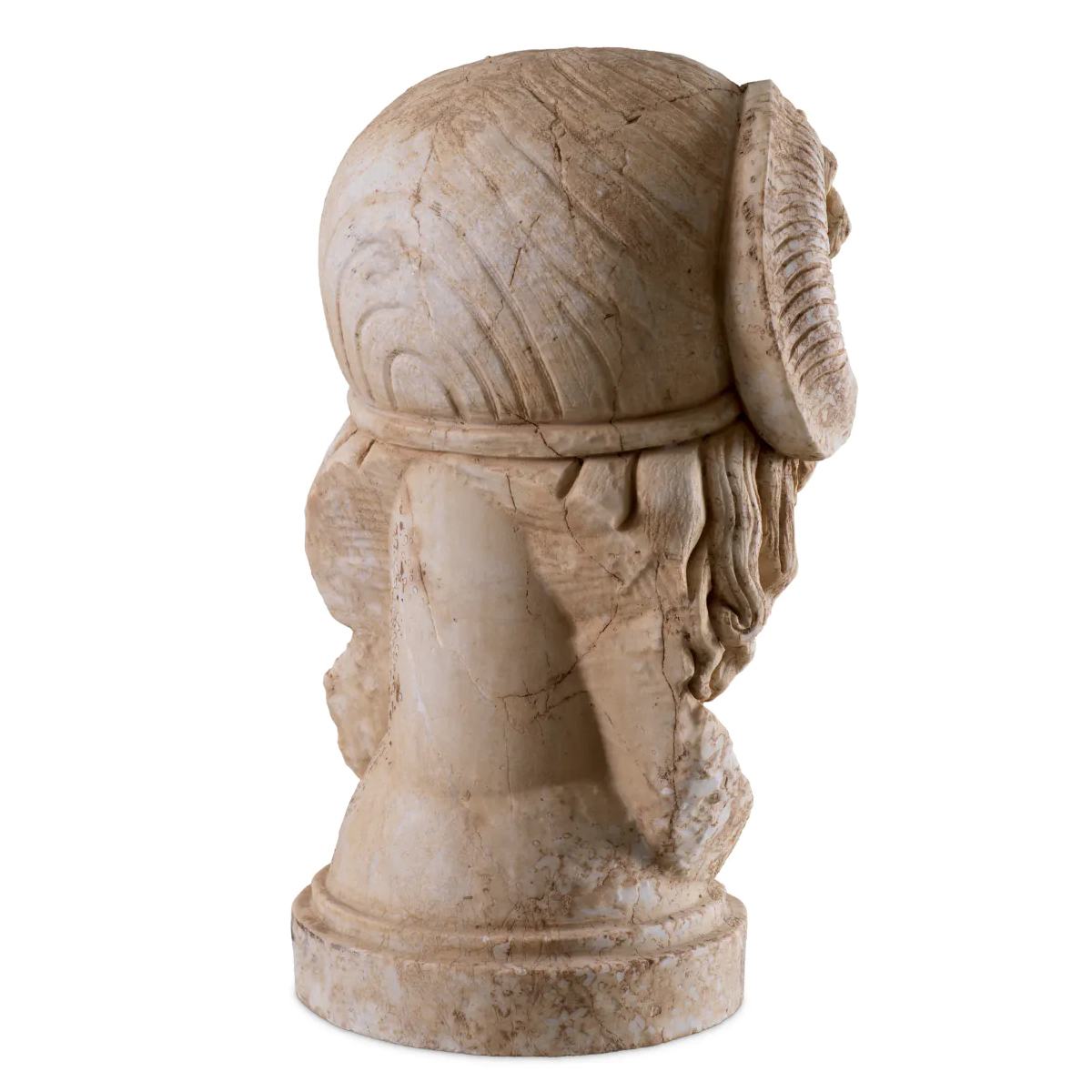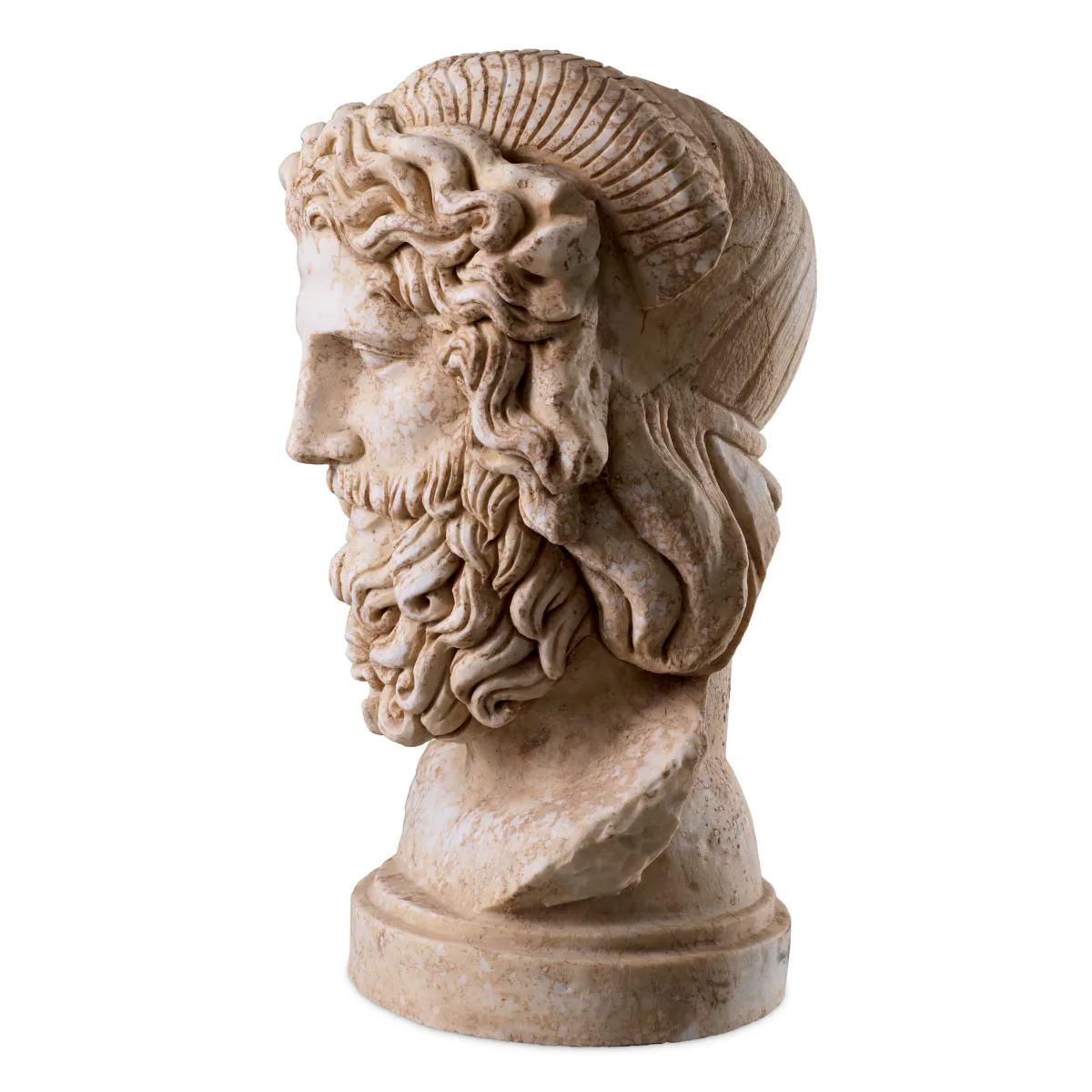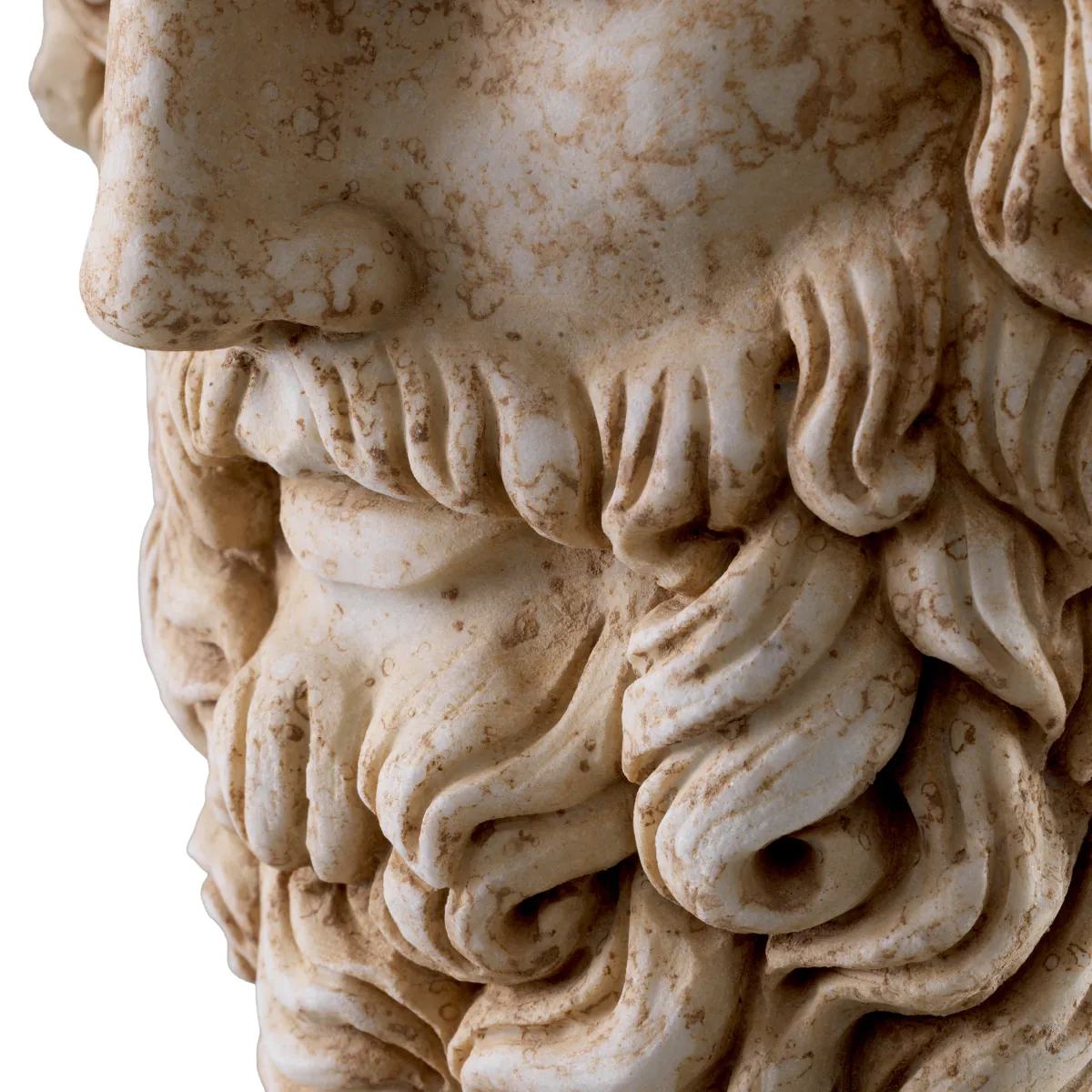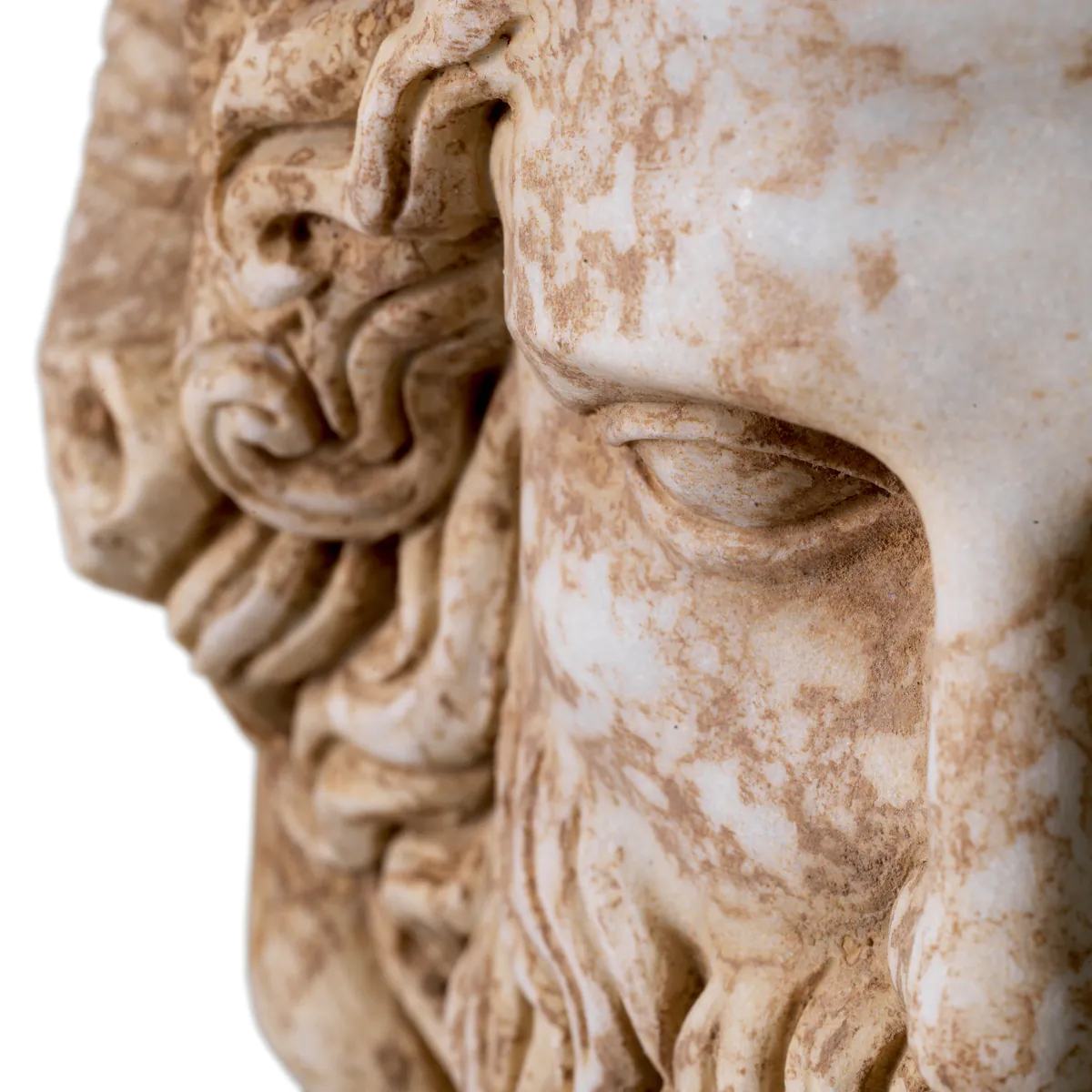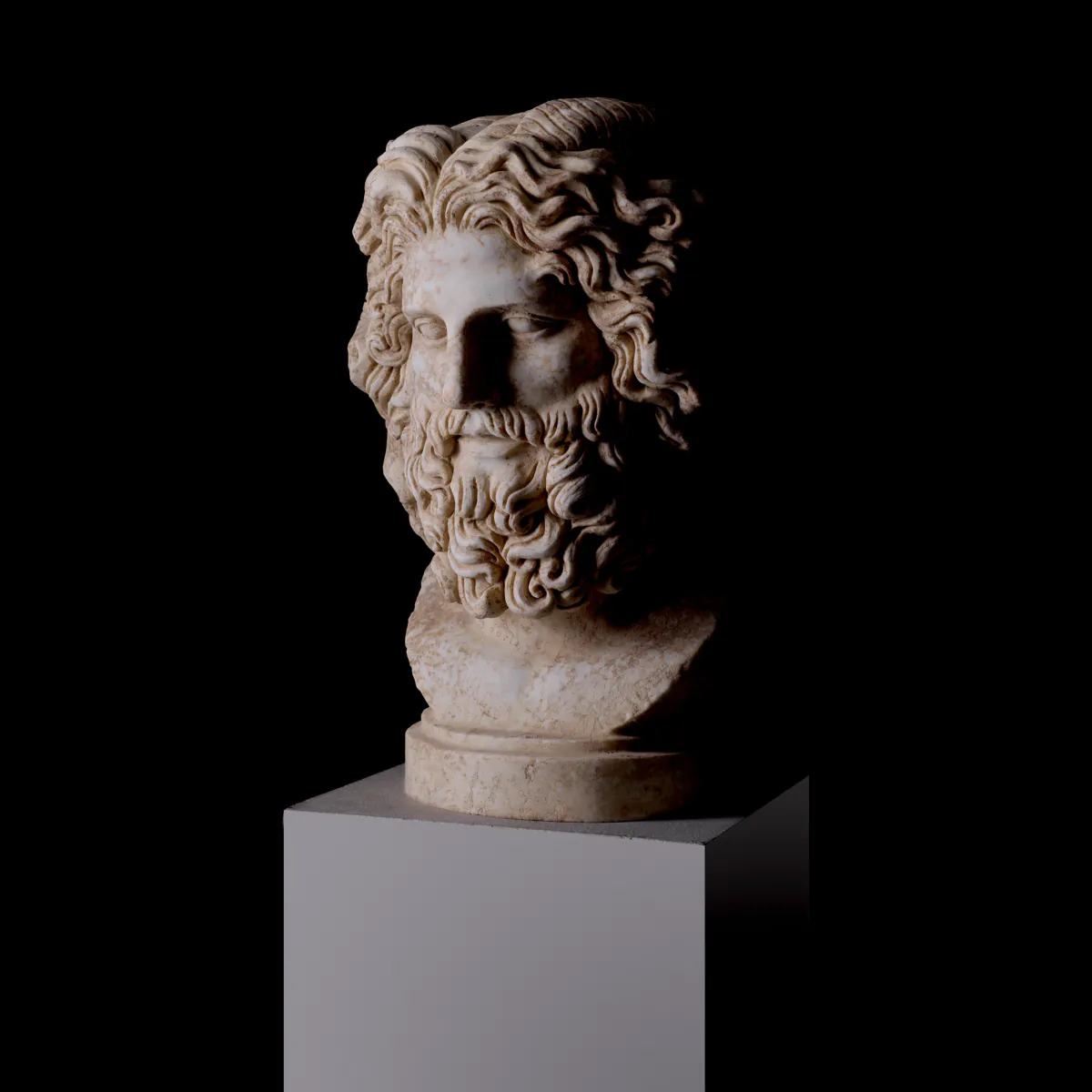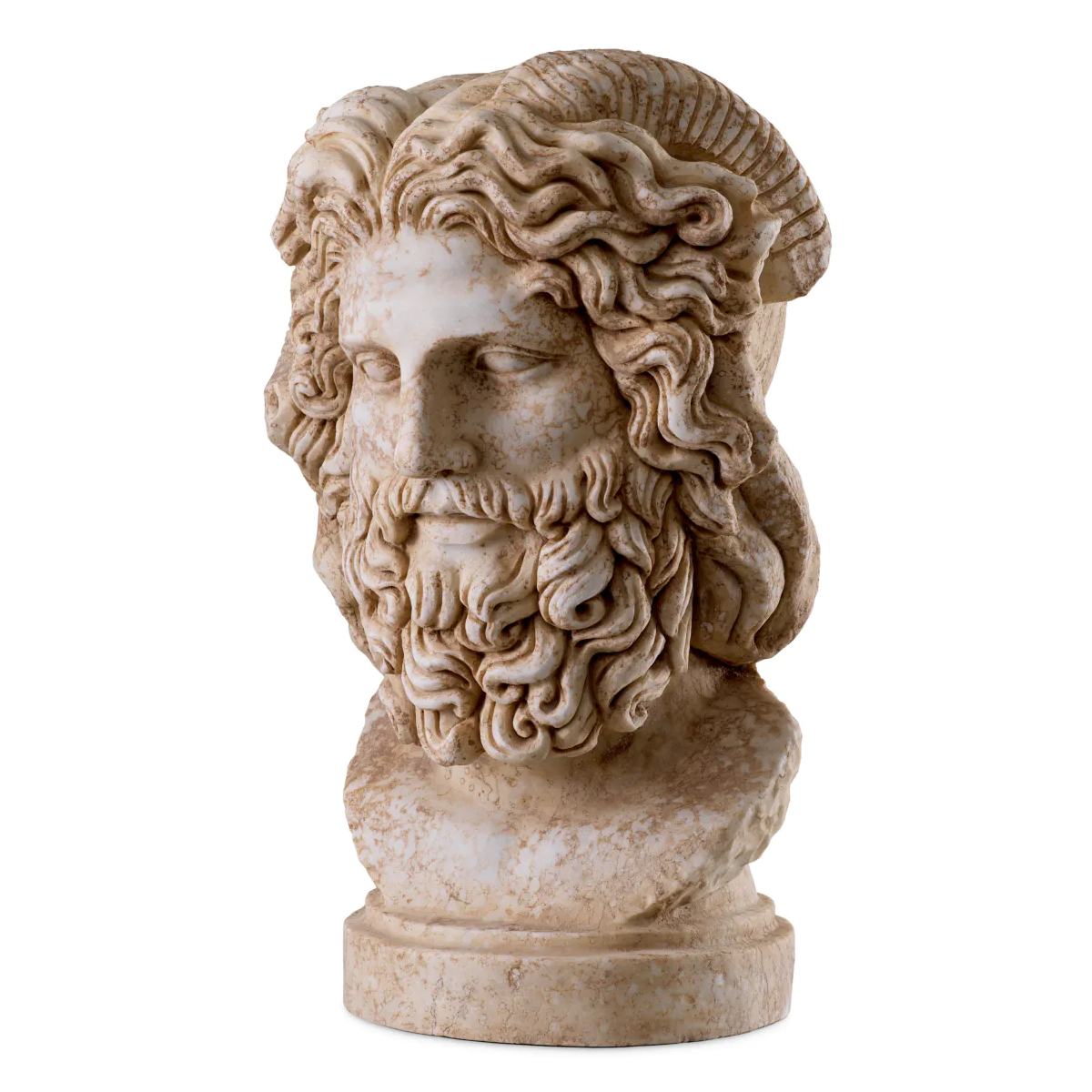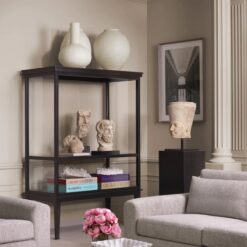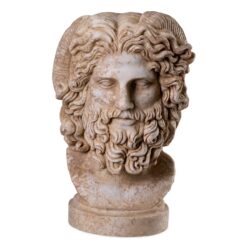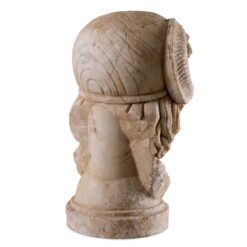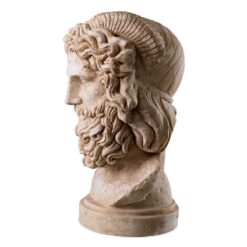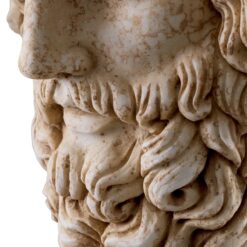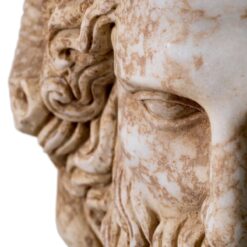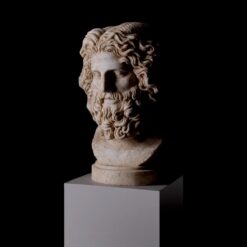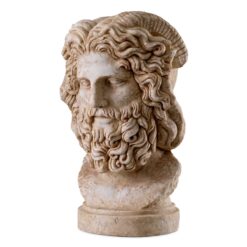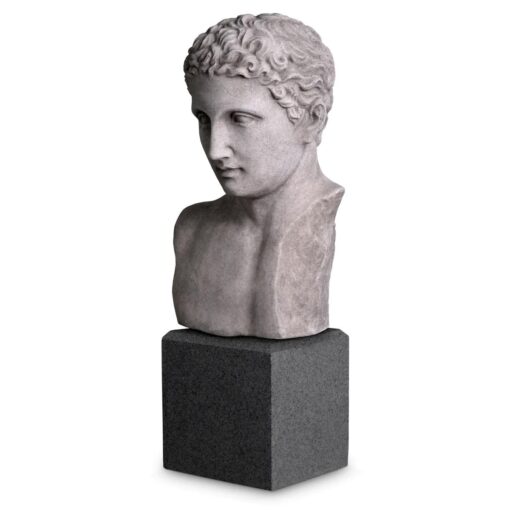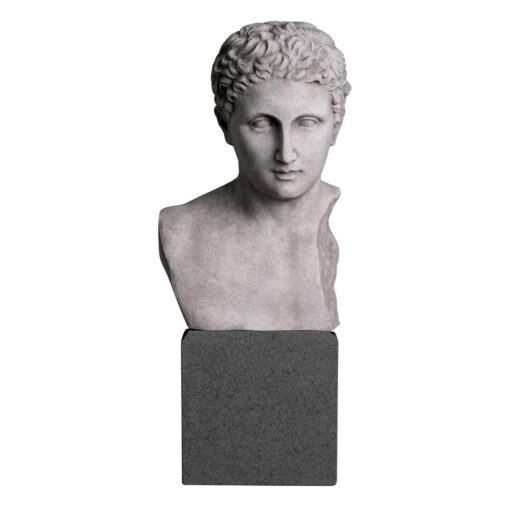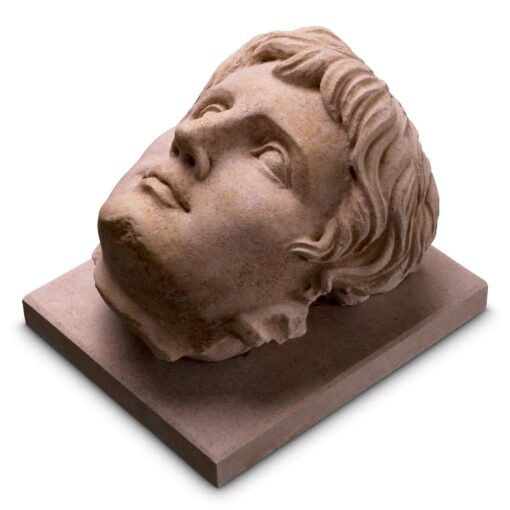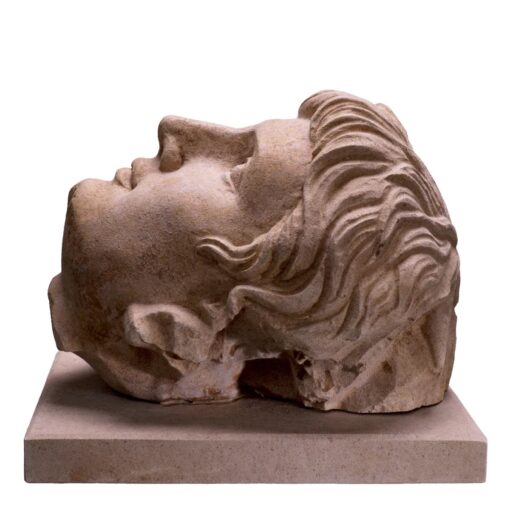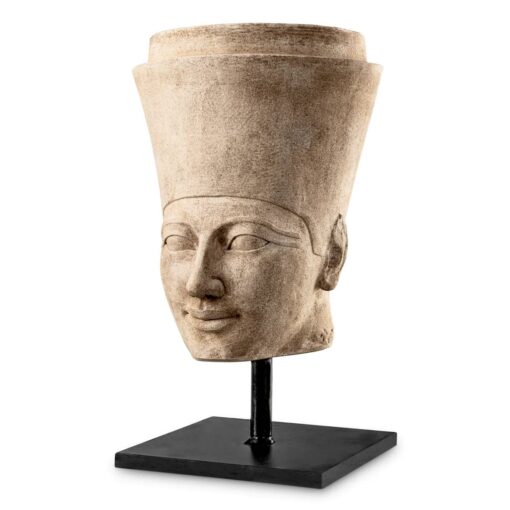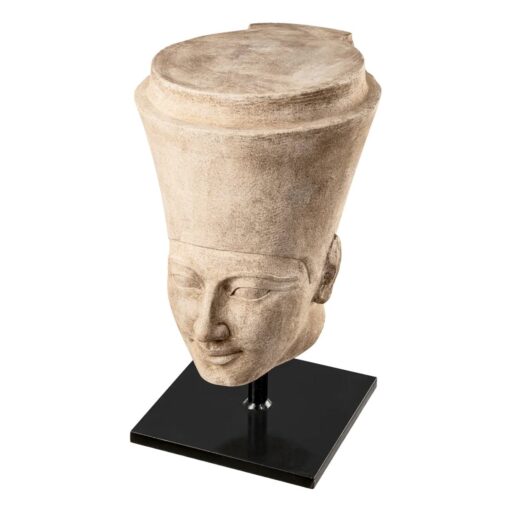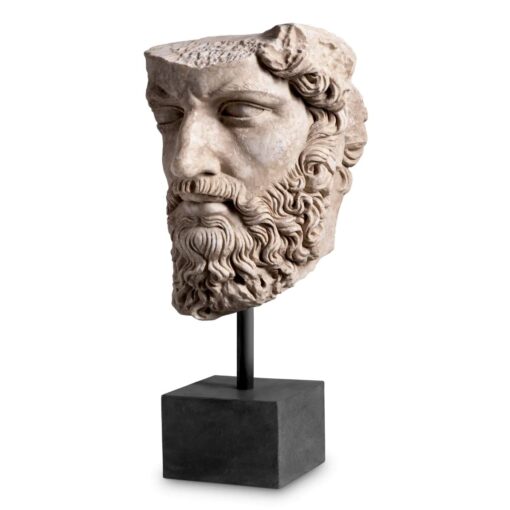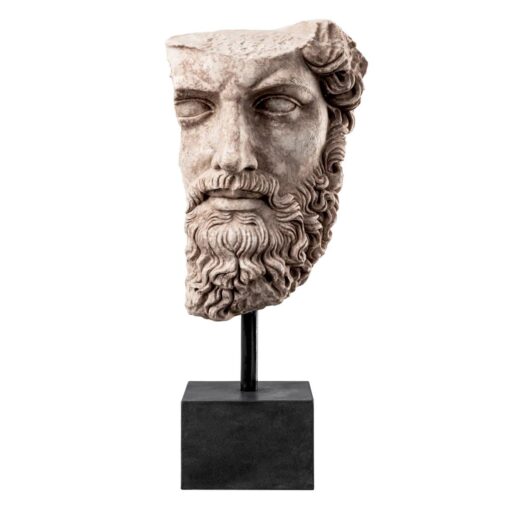Скульптура Zeus
Описание
The «Bust of Zeus» by Eichholtz celebrates a marble head of Zeus Ammon (ca. A.D. 120–160) in The Met’s Greek and Roman art collection. This powerful Roman portrait combines a classical Greek image of the bearded Zeus with the ram’s horns of the Egyptian Ammon. Standing tall at 40 cm., this contemporary interpretation is handcrafted to perfection. Its striking resemblance to the original celebrates timeless artistry and mythological splendor.
HISTORIC PROVENANCE
The Bust of Zeus is inspired by a marble head of Zeus Ammon (ca. A.D. 120–160) at The Metropolitan Museum of Art in New York. Zeus Ammon’s sanctuary at the Oasis of Siwa in the Libyan desert was already known when Alexander the Great made his pilgrimage there in 331 B.C. Legend says that the young king was proclaimed son of Zeus Ammon by the Oracle. The original Roman bust of the god combines the ram’s horns of the Egyptian Ammon with the classical Greek depiction of a bearded Zeus. It is thought that perhaps the sculpture was created in Egypt in the years following Alexander’s visit to Siwa. This serene reproduction has been carefully hand carved in marble, which delivers beautiful variations in color and natural veins.







